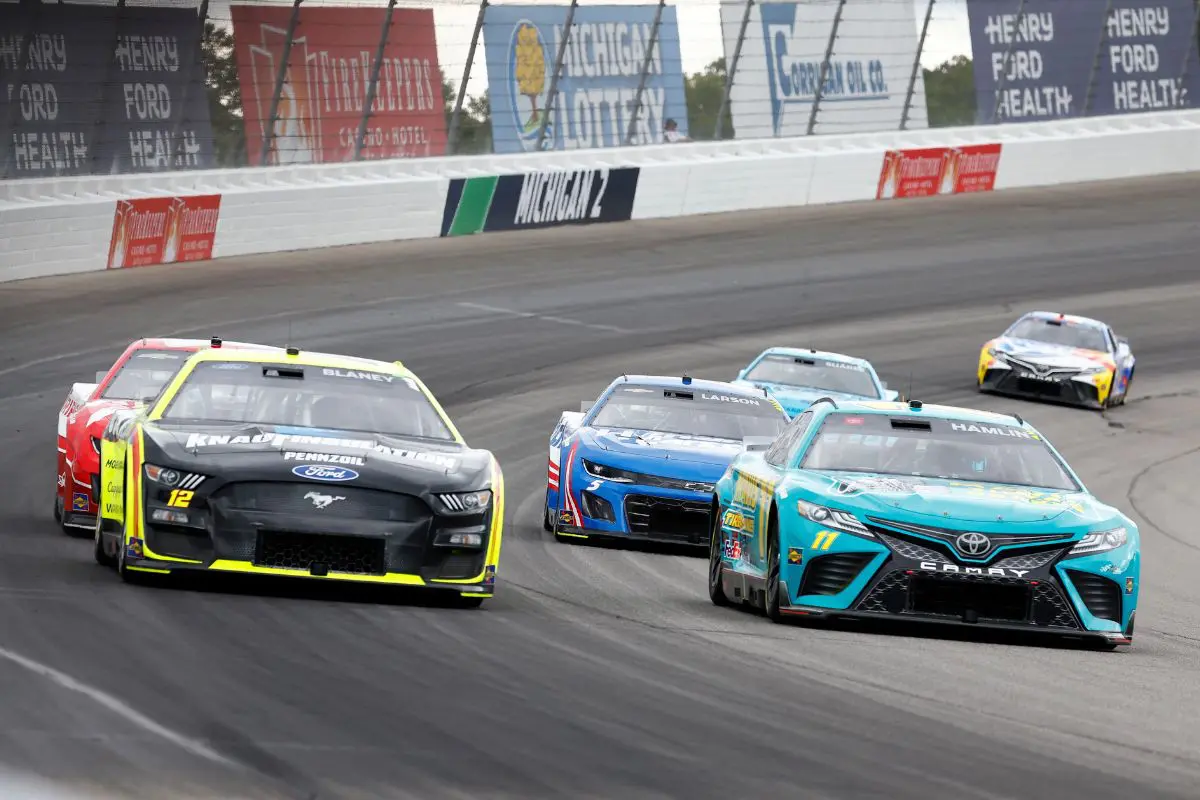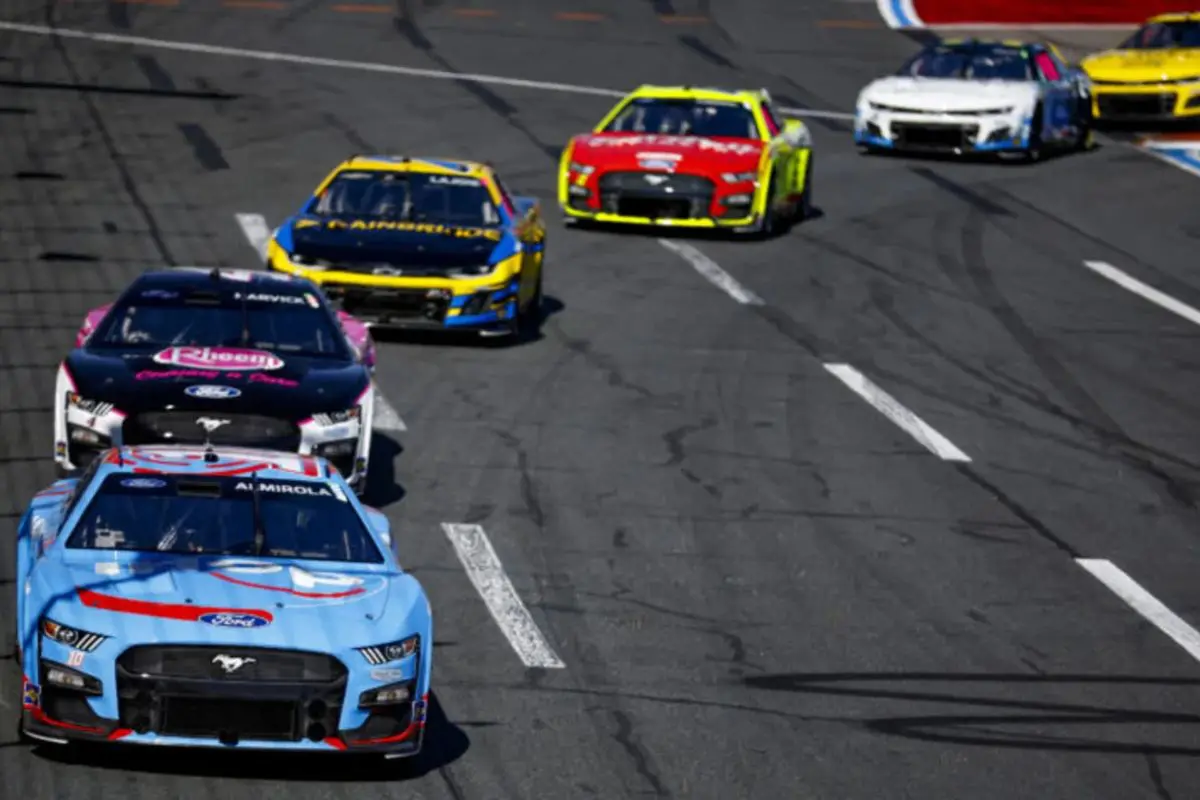Ex-Cup Team Owner Slams Rival’s Apology: The recent Toledo brawl has reignited discussions about accountability and sportsmanship in motorsport, particularly following the public apology issued by Bryan Glaze, which has been met with skepticism by many, including a former Cup team owner. This incident highlights the immediate consequences for those involved and raises critical questions about the broader cultural dynamics within racing. With the ASA imposing sanctions intended to uphold integrity, the implications of this controversy extend far beyond the track, challenging the very foundation of how competitive conduct is perceived. What does this mean for the future of the sport?
Key Highlights
- The Toledo brawl involved Matt Tifft and Billy VanMeter, escalating from aggressive racing maneuvers to a physical altercation in the pit area.
- Bryan Glaze’s public apology for his role in the incident was met with skepticism regarding its authenticity and sincerity.
- The ASA imposed sanctions, including suspensions and fines, to address unsportsmanlike conduct and promote accountability within the racing community.
- Tifft’s penalty raised discussions about team dynamics and the shared responsibility of drivers in managing escalating tensions during races.
- The brawl ignited broader conversations on professionalism and the need for improved conduct standards within the racing culture.
Matt Tifft’s Return and the Incident at Toledo Speedway
Matt Tifft’s much-anticipated return to competitive racing at Toledo Speedway was marred by an unfortunate incident that highlighted the volatility of the sport. After a three-year hiatus necessitated by a brain tumor, Tifft’s re-entry into the racing arena was met with optimism, yet it quickly devolved into chaos. Competing in an ASA STARS Super Late Model race, Tifft found himself spinning out due to an aggressive maneuver from Billy VanMeter. This initial incident was not merely a racing mishap; it set the stage for a broader confrontation that would capture the attention of the racing community.
As Tifft attempted to address the situation in the pit area, he encountered a violent escalation. Rather than a measured discussion to resolve the conflict, Tifft was met with hostility, culminating in a physical altercation that left him with injuries, including a bloody nose. This incident serves as a reminder of the intense emotions that can permeate the racing environment, where stakes are high and rivalries can ignite rapidly.
The aftermath raises critical questions about sportsmanship, accountability, and the culture within racing. While VanMeter’s team member received a suspension for his actions, the incident emphasizes a troubling trend where aggression supersedes dialogue.
The Nature of the Brawl and Reactions
The brawl at Toledo Speedway sharply exemplifies the volatile dynamics of competitive racing, where emotions can quickly escalate into physical confrontations. The incident, rooted in the high-stakes atmosphere of the Glass City 200, emphasizes the thin line between competitive fervor and outright aggression. Matt Tifft’s frustration, stemming from a perceived slight by rival driver VanMeter, ignited a chain reaction that culminated in violence.
While competitive spirit is inherent in motorsport, the decision to resort to physicality raises critical questions about sportsmanship and accountability. Tifft’s desire for a top-10 finish is understandable; however, his emotional response reflects a broader challenge within racing culture. The notion that one can justify harmful actions under the guise of competition is deeply troubling.
As Tifft grappled with his frustrations, Bryan Glaze’s actions—delivering a punch to Tifft while he was restrained—embody a concerning trend of hostility that can mar the integrity of the sport. VanMeter’s failure to address Glaze’s behavior in real-time further complicates the narrative, suggesting an alarming tolerance for aggression within the racing community.
Reactions to the brawl have been polarized, with some defending the heat of competition while others decry the violence as unacceptable. This incident serves as a poignant reminder of the need for introspection within the sport, challenging participants and fans alike to reflect on the values that underpin competitive racing.
Penalties and Apologies
In the aftermath of the Toledo brawl, the discourse has shifted towards the implications of penalties and the sincerity of apologies extended by those involved. Bryan Glaze‘s public apology, posted on social media, aimed to address his unacceptable behavior during the altercation. In his statement, Glaze expressed disappointment in himself, acknowledging that his actions stemmed from a moment of anger—an admission that carries weight in discussions of accountability. He also extended apologies to several parties, including Matt Tifft, his team, and sponsors, signaling an attempt to mitigate the fallout from his conduct.
However, the authenticity of Glaze’s apology has been met with skepticism. Donnie Wilson’s pointed comment about previous grievances against Glaze raises questions about the consistency of his character and whether this apology is genuinely reflective of remorse or merely a tactical response to public backlash.
https://t.co/SFYDxJ7VZn pic.twitter.com/YT5tPqjE7l
— Matt Weaver (@MattWeaverRA) September 16, 2024
This skepticism was further amplified by Tifft’s dismissive remark about Glaze, indicating a broader sentiment within the racing community regarding the sincerity of such apologies.
The situation highlights a critical tension in sports culture: the relationship between personal accountability and public perception. As stakeholders evaluate the efficacy of apologies, the focus shifts to whether such gestures will translate into meaningful change or merely serve as temporary salves for deeper issues.
Sanctions Imposed by ASA
While the brawl at Toledo has prompted widespread discussion about accountability, the ASA’s response through sanctions highlights the seriousness with which the organization views unsportsmanlike conduct. The indefinite suspension of Bryan Glaze from all ASA and CRA competitions serves as a clear signal that such behavior will not be tolerated. This decisive action reflects the ASA’s commitment to maintaining integrity and safety within the sport.
Furthermore, the penalties imposed on the EDCO Welding team, which include a $2,000 fine, a 25-point deduction in the championship owner standings, and a probationary period, underline the collective responsibility teams bear for their members’ actions. This approach not only addresses individual misconduct but also aims to foster a culture of accountability within the teams themselves.
In conjunction with these measures, the ASA penalized driver Billy VanMeter with a 25-point deduction for his involvement in multiple on-track incidents, reinforcing the notion that repeat offenders will face repercussions.
The ASA’s disciplinary actions against Matt Tifft, which included a $250 fine, a 25-point deduction, and a year-long probation, further exemplify the organization’s dedication to enforcing standards of conduct.
These sanctions collectively signify a robust framework aimed at deterring future incidents and promoting a more respectful and competitive environment. As the ASA navigates the aftermath of the Toledo brawl, its decisive measures will likely resonate throughout the racing community, emphasizing the importance of sportsmanship and respect in the pursuit of excellence.
Matt Tifft’s Penalty and Team Reaction
Sanctions imposed by the ASA have sparked considerable reactions within the racing community, particularly regarding Matt Tifft’s penalty for his involvement in the brawl at Toledo. The ASA’s penalty statement cited Tifft for violating specific rules related to unsportsmanlike conduct and fighting, highlighting the severity of his actions within a sanctioned event.
- Key Violations: Tifft’s actions were deemed a breach of conduct rules.
- Team’s Response: Billy VanMeter’s team has distanced itself from Bryan Glaze following the incident.
- Broader Implications: The fallout raises questions about team dynamics and accountability in racing.
“I, Billy VanMeter, my race team, and family want to take a moment and apologize for the situation that took place at Toledo Speedway Saturday night. We have taken steps internally and Bryan Glaze is no longer with the team. Additionally, I as a driver am going to take all of this and try to grow and mature on and off the track.” – VanMeter
While Tifft’s actions were condemned, the narrative is nuanced. VanMeter’s account revealed that he was directly assaulted by Tifft, stating, “I was hit by Matt Tifft… and hit me.”
“I was hit by Matt Tifft, he entered my pit as I stood next to my car, said ‘WTF’ and hit me. No one’s seeing that side of the story, it’s unfortunate how it turned out for all involved.”
“We as a team want to apologize to our fans, sponsors, Toledo Speedway, the officials, drivers, STARS National Tour, and ASA. We accept the penalties and will learn from this and better as a driver and team.”- VanMeter
This revelation complicates the understanding of culpability and suggests a shared responsibility in escalating tensions. VanMeter’s apology and commitment to improvement reflect an awareness of the sport’s image and the need for improved conduct.
The incident has ignited discussions about the culture within racing, emphasizing the significance of maintaining professionalism.
Both Tifft and VanMeter’s responses will likely influence how fans perceive their teams and the broader implications for driver behavior in the future.
As the community reflects on this controversy, the focus shifts toward fostering an environment that prioritizes respect and sportsmanship, crucial for the sport’s integrity.
News in Brief: Ex-Cup Team Owner Slams Rival’s Apology
The Toledo brawl controversy highlights critical issues surrounding sportsmanship and accountability within motorsport. The incident involving Matt Tifft and Billy VanMeter not only reflects an alarming trend of aggression but also raises questions regarding the sincerity of public apologies and the effectiveness of imposed sanctions. As the ASA seeks to restore integrity, the broader cultural dynamics of racing demand introspection and reform to guarantee that accountability transcends mere rhetoric, fostering a more respectful competitive environment.
ALSO READ: Cup Team Owner Breaks Silence On NASCAR Charter Threats: “They Put a Gun to Our Head”




